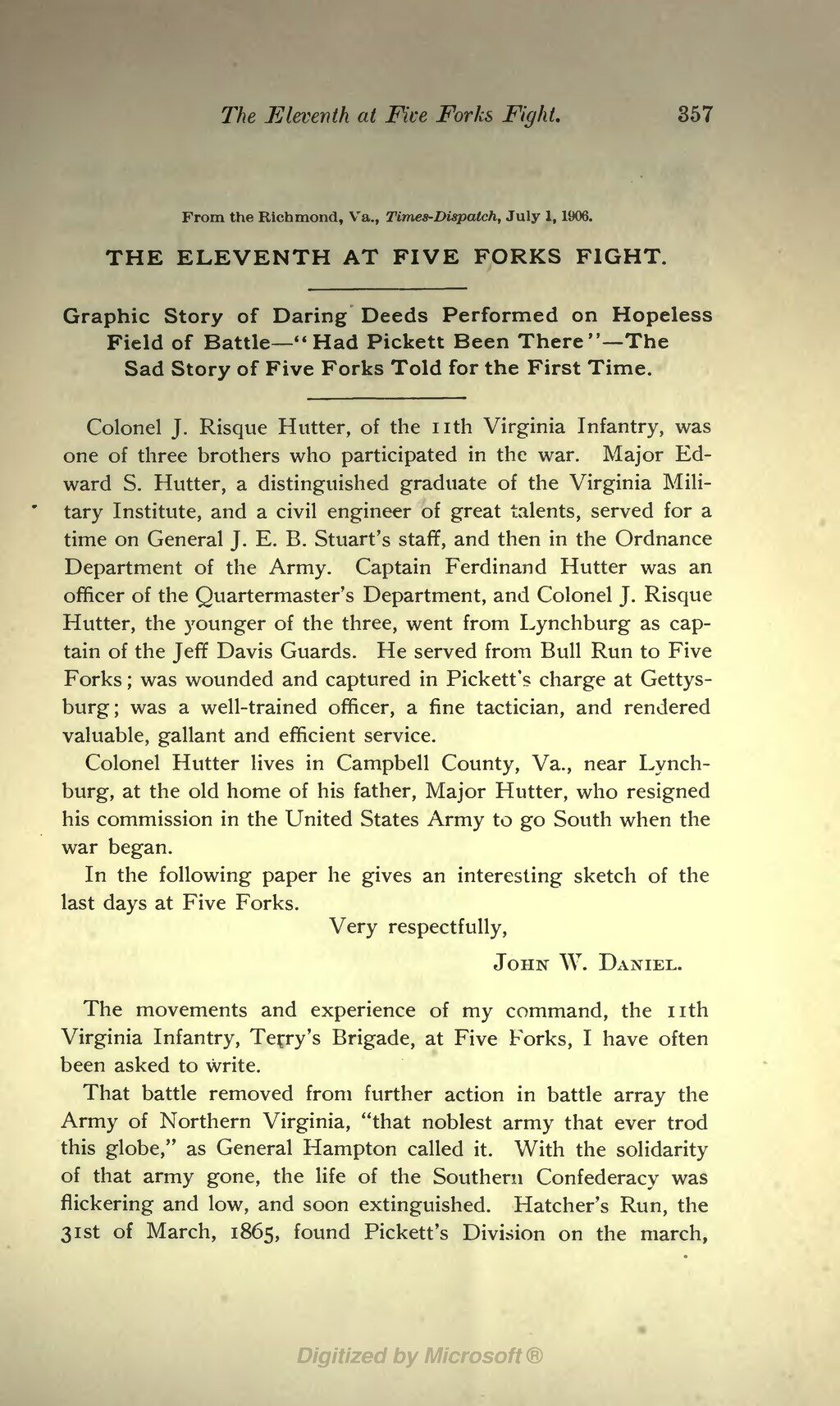From the Richmond, Va., Times-Dispatch, July 1, 1906.
THE ELEVENTH AT FIVE FORKS FIGHT.
Graphic Story of Daring Deeds Performed on Hopeless
Field of Battle—"Had Pickett Been There"—The
Sad Story of Five Forks Told for the First Time.
Colonel J. Risque Hutter, of the 11th Virginia Infantry, was one of three brothers who participated in the war. Major Edward S. Hutter, a distinguished graduate of the Virginia Military Institute, and a civil engineer of great talents, served for a time on General J. E. B. Stuart's staff, and then in the Ordnance Department of the Army. Captain Ferdinand Hutter was an officer of the Quartermaster's Department, and Colonel J. Risque Hutter, the younger of the three, went from Lynchburg as captain of the Jeff Davis Guards. He served from Bull Run to Five Forks; was wounded and captured in Pickett's charge at Gettysburg; was a well-trained officer, a fine tactician, and rendered valuable, gallant and efficient service.
Colonel Hutter lives in Campbell County, Va., near Lynchburg, at the old home of his father, Major Hutter, who resigned his commission in the United States Army to go South when the war began.
In the following paper he gives an interesting sketch of the last days at Five Forks.
Very respectfully,
JOHN W. DANIEL.
The movements and experience of my command, the nth Virginia Infantry, Terry's Brigade, at Five Forks, I have often been asked to write.
That battle removed from further action in battle array the Army of Northern Virginia, "that noblest army that ever trod this globe," as General Hampton called it. With the solidarity of that army gone, the life of the Southern Confederacy was flickering and low, and soon extinguished. Hatcher's Run, the 3 ist of March, 1865, found Pickett's Division on the march,
